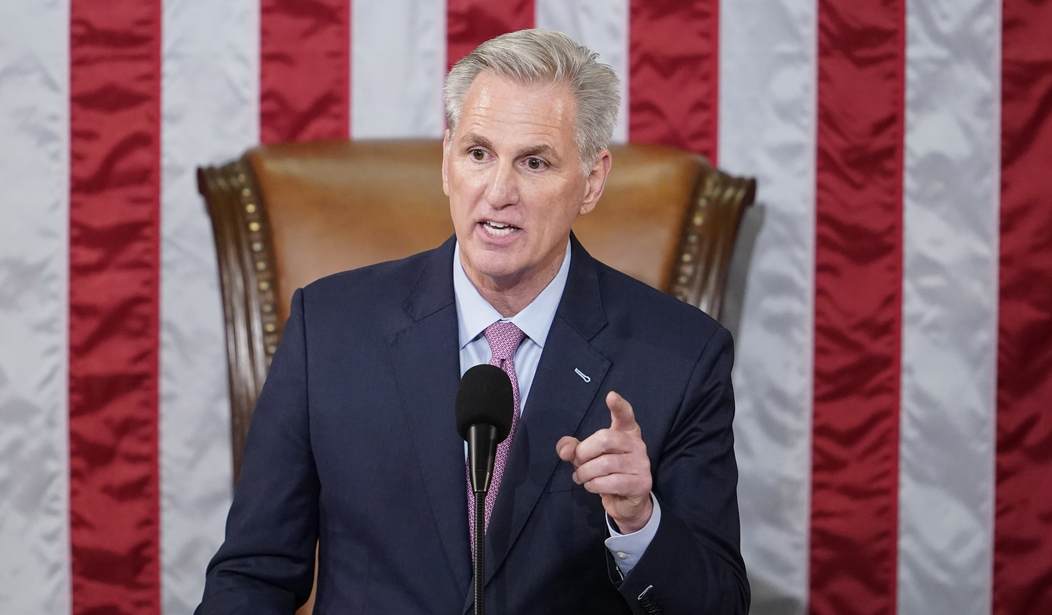After ignoring Speaker Kevin McCarthy for months on end regarding the debt ceiling, Joe Biden has finally agreed to a meeting. But that only happened after the House GOP called Biden’s bluff and passed a debt ceiling increase that included significant spending cuts. It’s still possible that a short-term spending bill could be passed to allow for more time for negotiations, but Hakeem Jeffries won’t commit to the idea. So far, Biden’s team appears to be playing hardball, demanding a “clean” debt ceiling increase. A failure to come to an agreement could have serious negative consequences. But if Joe Biden is counting on “rallying the support of the people” against the House GOP plan, a survey this week from Rasmussen Reports suggests that he is very badly misunderstanding how the public views the issue. A strong majority of voters prefer McCarthy’s plan over Biden’s call for a “clean” debt limit increase.
Most voters support House Speaker Kevin McCarthy’s proposal to raise the debt ceiling and reduce future deficit spending, and expect a compromise with the White House over the bill.
The latest Rasmussen Reports national telephone and online survey finds that 57% of Likely U.S. voters support the debt ceiling bill passed by Republicans in the House of Representatives, including 32% who Strongly Support it. Thirty-four percent (34%) oppose the GOP plan, including 21% who Strongly Oppose it (To see survey question wording, click here.)
We’ll get back to the specific results in a moment, but take a couple of minutes and watch this short video from Rasmussen head pollster Mark Mitchell where he breaks down a couple of the key crosstabs and what they mean for Biden’s prospects in this battle.
I was quite surprised by the gap in these poll numbers and particularly the party breakdown in the results. 57% of respondents either “somewhat” or “strongly” supporting McCarthy’s plan isn’t a gigantic number, but it’s very large when you look at the 34% who strongly or somewhat oppose it.
Rasmussen added in a more nuanced question that should send an even stronger signal to the White House. Respondents were asked who should be “more willing to compromise” in the expected meeting. Once again, a significant majority said that Biden should be more willing to compromise and a plurality of Democrats felt the same way.
The underlying message seems to suggest a nation of voters who are less interested in partisan bickering than the cable news networks would have you believe. Maybe people just want the swamp-dwellers in Washington to just sit down and do their jobs rather than grandstanding and risking yet another fiscal crash. And wouldn’t that be a refreshing change?
We need serious spending cuts if we’re ever going to get the national debt under control. (A prospect that sadly seems more and more impossible.) But it doesn’t seem as if we’ll manage any significant reductions while the GOP only controls one branch of Congress and the Democrats have the White House. But Joe Biden really needs to watch his step here, and I don’t mean while he’s climbing the stairs to Air Force One. He’s been trying to project a “my way or the highway” approach. How surprised will he be if the response ends up pointing to the highway?








Join the conversation as a VIP Member